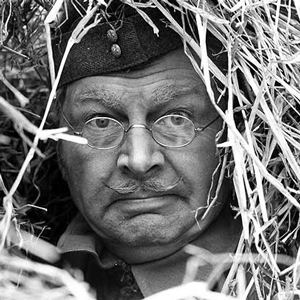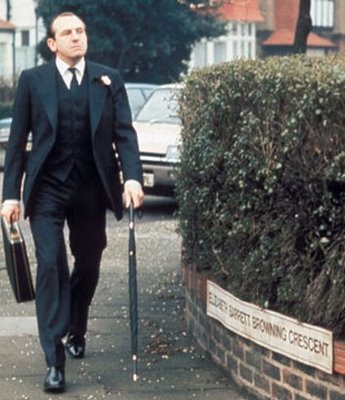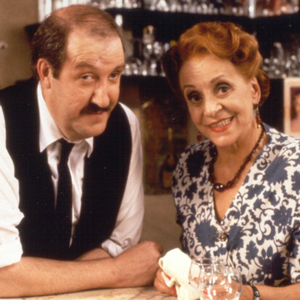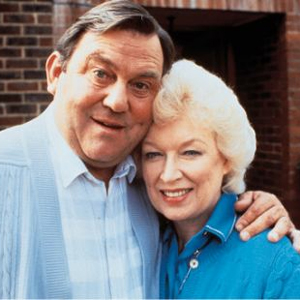Standing the test of time: the 'classic' British sitcom
BCG reader David Allan offers some thoughts on why some comedies stand the test of time better than others...

Ever wondered why repeats of certain sitcoms seem to have lost their original appeal? We may believe that the change has occurred through our own maturity and developed expectations yet I have often reflected on my own viewing as a child. What was funny and exciting back then no longer holds my attention in the same manner; I originally associated this with growing up. However, watching sitcoms such as Never The Twain, Terry & June, Reginald Perrin, Dad's Army, and Only Fools And Horses was always a family affair and I never recall my parents suggesting they were anything other than pure hilarity at the time.
Watching some of these sitcoms today, I find myself torn between the genuine hilarity of the time, and my affectionate and nostalgic representation of them. There are many particularly funny moments in all these sitcoms but it's probably fair to say that whilst some have successfully retained their humour, many have passed their sell-by date. So what makes a classic?
In Never The Twain, we have the potential ingredients for a successful sitcom - motivated characters willing to make the most of their intriguing situation, conflict of interest between them - yet despite the odd humorous moment and an initial success, it ran out of steam way before the TV company decided to call it a day. At broadcast, the series did entertain well but its unfortunate mediocrity is only too clear when viewed during repeats. In today's obsession with televisual reality (current soap operas excepted), it is difficult to imagine a prime slot for such lacklustre material yet throughout the whole of the eighties we tolerated it for eleven series.
Terry & June is currently enjoying a successful re-run but on the whole there are elements that a modern audience - particularly teenagers - would struggle to relate to. The instability of modern life that is reflected in careers, marriages/relationships, social circles and so on has resulted in an overall decrease in commitment from the average individual. Jobs are no longer 'for life', marriages don't need to be 'worked at', and friends are aplenty - particularly with a Facebook profile. We live in a fast-paced culture where our senses are bombarded daily with an abundance of stimuli and change appears to be synchronised with the expansion of the universe: accelerating rather than constant. Consequently, Terry's continual effort to win the approval of his boss is a rather alien concept. 'Just get another job' the modern audience cries, before switching off. Which is a shame as there are often some excellent gags and one-liners.

Similarly, Reggie and his boss CJ present us with a rather difficult-to-relate-to relationship in the original 1976 The Fall And Rise Of Reginald Perrin. The whole expression of the 'I didn't get where I am today...' notion of working your way up in a company suggests an almost antiquated yearning for security. Moreover, Perrin's representation of the bowler-hatted commuter (mocked earlier in Tony Hancock's The Rebel) denotes the end of an era. To be fair to his character, he is extremely subversive towards the stereotype but it creates a growing dissonance with the modern viewer. Perhaps one of the reasons Perrin doesn't really stand the test of time is that it peaked early on and seemed to run out of interesting adventures. Furthermore, the constant milking of its usual gags had no choice but to wear thin in the end. Leonard Rossiter executes his usual excellent performance but even his talent cannot save the show and by the middle of the second series it becomes an effort to continue viewing. The creative, comedic elements are gone and we are left with a re-hash of the earlier assumed humour.
Terry & June fails to wow the modern audience. It's all very mediocre and so lacking in conflict that the original appeal has gone. The characters are plain and middle-of-the-road, unlike other sitcoms of a similar period. The Good Life, although slightly earlier, introduces us to characters such as Tom and Barbara whom we remember fondly for their peculiar lifestyle; Margot for her snobbery and Jerry for his endless attempts to retain normality. However, despite the earlier popularity of Terry & June, many people of today would be hard pushed to identify a solid aspect of the show's success. Overall, the humour is, unfortunately, of its era. Terry Scott gives his all - and a valid effort, for sure - but with run-of-the-mill support from the one-dimensional characters around him (in particular his overacting work colleague Malcolm played third time round by John Quayle) it's clear to see why the show had a shelf life that expired in the 90s.

Many older sitcoms have enjoyed continual success and, indeed, some have actually grown in appeal: Only Fools And Horses and Dad's Army serving as lucid examples. Of course part of the reason why Dad's Army struggles to date is that it was set in the past and dated from its inception. There is acceptance, therefore, on behalf of the audience to place the setting within a pre-agreed framework. We accept that there are no mobile phones and laptops as a modern viewer but not because it was made in the 60s/70s. Rather, we acknowledge the period of World War II. Aside from this, however, there are other necessary elements for acquiring the 'classic' status as evidenced through the lack of longevity of 'Allo 'Allo!. All the characters in Dad's Army are powerful and interrelate well. Despite the hierarchy on screen, no one character steals the show. Indeed, each one has their moments and, arguably, may steal a show but the overall achievement is definitely a team effort. The characters are also realistic and plausible due to their fantastic depth and this helps avoid the stereotypical characters and caricatures we see in 'Allo 'Allo!. Indeed, actors that revel in their own funniness can very quickly become unfunny.
Strong characters are essential for good comedy but setting and situation are also important enough to make or break a sitcom. We remember Del Boy, Rodney, Grandad and Uncle Albert because their characters are powerful and relate to humanity whatever the social period. However, we also remember specific actions or plots: Del Boy falls through the hatch in a bar, the wrong chandelier is smashed in an upper-class manor. Not so memorable, 'Allo 'Allo! plots fail to carry an equal status even though the show does contain characters that are still quoted today: "Good moaning!"
So roll back to the mid-80s and you'll see families congregating regularly to tune in to the sitcoms of the period but scroll forward to the 21st century and the same families need to work twice as hard and employ an abundance of nostalgia to capture just 50% of the entertainment. Below is a short list of five sitcoms that have, in my opinion, stood the test of time for funniness and five that have not:

Past their watch-by date?
The Fall And Rise Of Reginald Perrin
Never The Twain
That's My Boy
In Loving Memory
'Allo 'Allo!
Classics?
Only Fools And Horses
Dad's Army
Blackadder
Fawlty Towers
George & Mildred
Help us publish more great content by becoming a BCG Supporter. You'll be backing our mission to champion, celebrate and promote British comedy in all its forms: past, present and future.
We understand times are tough, but if you believe in the power of laughter we'd be honoured to have you join us. Advertising doesn't cover our costs, so every single donation matters and is put to good use. Thank you.
Love comedy? Find out more
